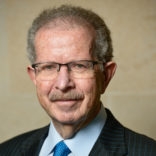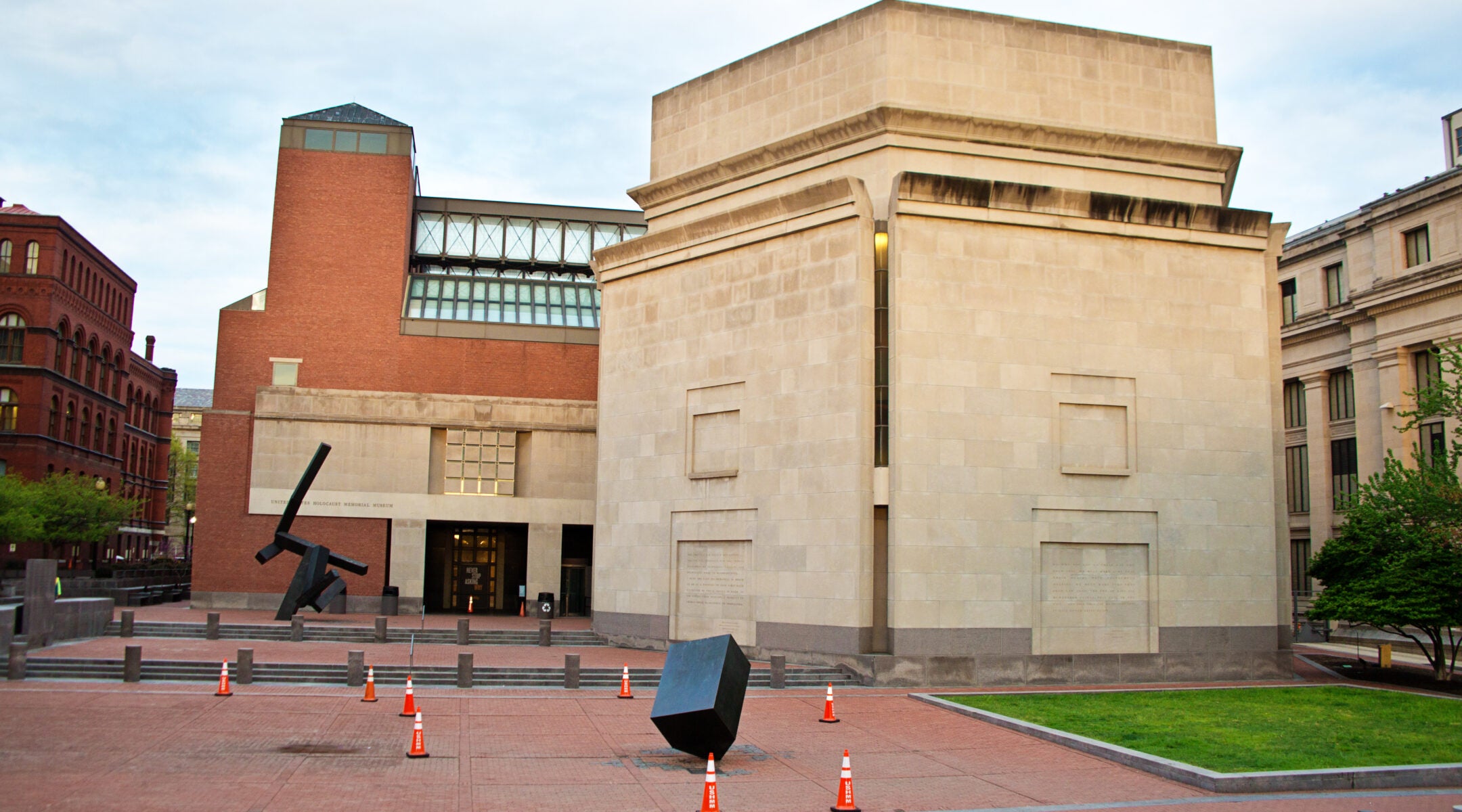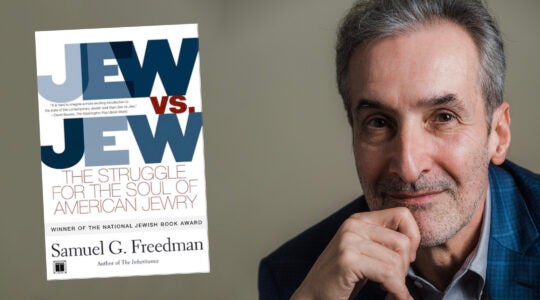As a former member of the United States Holocaust Memorial Council — appointed by President Bill Clinton to two five-year terms and by President Barack Obama to another two — I have watched with interest and concern the controversy over President Donald Trump’s firing of a number of recent Biden appointees to the council.
In April, after Trump removed him from the council, which oversees the operations of the U.S. Holocaust Memorial Museum in Washington, D.C., former second gentleman Douglas Emhoff, the husband of Biden’s vice president and 2024 presidential candidate Kamala Harris, declared in a statement, “Holocaust remembrance and education should never be politicized. To turn one of the worst atrocities in history into a wedge issue is dangerous — and it dishonors the memory of six million Jews murdered by Nazis that this museum was created to preserve.”
Others dismissed from the council together with Emhoff, all of whom had been appointed in January of this year, included Biden’s first chief of staff, Ron Klain; former labor secretary Tom Perez; and Susan Rice, who had been national security adviser to Obama and Biden.
More recently, Kevin Abel, whom Biden named to the council in 2023, upped the ante by circulating a letter in which he in effect equated the fact that the museum — a federal institution — had not publicly spoken out against the dismissal of the Biden appointees from the council to the widespread global silence and inaction in the face of Nazi German persecution and murder of European Jews before and during World War II.
“The Holocaust teaches us,” Abel wrote, “that by using fear to buy silence, the Nazis were able to incrementally isolate, demonize, and then murder millions of Jews.”
I was taken aback by this statement, both as a council veteran and as the son of two survivors of the Nazi death and concentration camps of Auschwitz and Bergen-Belsen. I believe the rhetoric surrounding the firings has gotten out of control and betrays an insensitivity to if not disturbing ignorance of the enormity and significance of the Holocaust.
The fact is that Trump is fully within his rights to change the makeup of the United States Holocaust Memorial Council.
The council was established under President Jimmy Carter in 1980. Fifty-five of its members are appointed by the president — 11 a year for five-year terms — and another 10 are congressional members from the House and Senate.
From the outset — Carter’s final days in office in January 1981 — outgoing presidents have filled their allotments before leaving office, at times rewarding members or allies of their administrations with little apparent connection to the mission of the museum. This caused a succession of presidents to have to wait a full year before making their own appointments. Trump followed this model when he first entered the White House in 2017; in 2025, he is evidently less patient.
The museum is a critically important institution. It preserves the memory of the Holocaust as a central, defining event of the 20th century with profound educational and ideological significance for not just the United States but humankind as a whole. It is one of a number of outstanding institutions around the world that share this responsibility, including Yad Vashem in Israel, the Imperial War Museum’s Holocaust Galleries in London, the Museum of Jewish Heritage in New York City, and the Documentation Centre at the site of the former Nazi concentration camp of Bergen-Belsen in Germany, to name only a few.
As Ambassador Stuart Eizenstat, the chair of the council, has correctly pointed out, the members of the council serve at the pleasure of the president. “We are all appointed by the President,” Eizenstat wrote to his fellow Council members this month, “and can be removed by the President.” The fact that no previous president chose to dismiss sitting council members in order to replace them with his own appointees in no way undermines this reality. And other presidents have indeed availed themselves of such an option with respect to members of other federal boards.
I very publicly supported the Democratic presidential candidates in 2016, 2020 and 2024. I would have much preferred for someone other than Trump to be the president. But now that he is, he was acting within both rights and norms when he installed his own choices on the museum council.
If the cause for Emhoff’s firing and that of the others dismissed from the council had been antisemitism or some other form of actionable bigotry — i.e., xenophobia, Islamophobia, homophobia, etc. — then the museum’s leadership would have had a reason, even an obligation, to speak out forcefully and publicly. But this was not the case here.
Criticize Trump or the Trump administration for their actions all you want and as loudly as you want — that’s fair game. And flashbacks to the Holocaust or analogies to Nazi-like behavior can at times be appropriate, as was the case when Trump dined at Mar-a-Lago with white supremacist Nick Fuentes who brayed, “All I want is revenge against my enemies and a total Aryan victory … I’m just like Hitler.”
But I encourage my fellow stewards of Holocaust history and Holocaust memory to think very carefully about the tenor of their rhetoric. Being removed from a board of directors — which is what the council is — that meets twice a year is not the same as being a victim or even target of discrimination, persecution, oppression or genocide.
Being a member of the council is a singular honor that comes with profound responsibilities — I certainly considered it as such — but it is neither an entitlement nor a basis for somehow, in any way, equating oneself with the victims or targets of discrimination, persecution, oppression or genocide.
And a decision on the part of the museum leadership not to react to the removal of members of the council cannot and must not be analogized to a failure to condemn genocide.
There can be no question that the removal of the Biden appointees from the council was a political act. But then again, many of the appointments to the council over the past more than four decades were political acts as well, intended as political rewards to Republicans and Democrats alike. This is the nature of the beast.
This administration carries real risks for the future of democracy, the preservation of civil rights and the security of minorities in the United States, including Jews. I understand the impulse to turn the rhetoric to 11. But the U.S. Holocaust Memorial Museum teaches us that language matters and that we are not allowed to exploit the Holocaust by referring to it in connection with every grievance we may have, with every slight that is committed against us.
The museum teaches us — and our knowledge of history should teach us — that analogies to the Holocaust and to Nazism must be reserved for those situations and the type of rhetoric that actually evoke the conditions or atmospherics that led up to and made possible the genocide of European Jewry. To do otherwise trivializes the cataclysm.
JTA has documented Jewish history in real-time for over a century. Keep our journalism strong by joining us in supporting independent, award-winning reporting.







